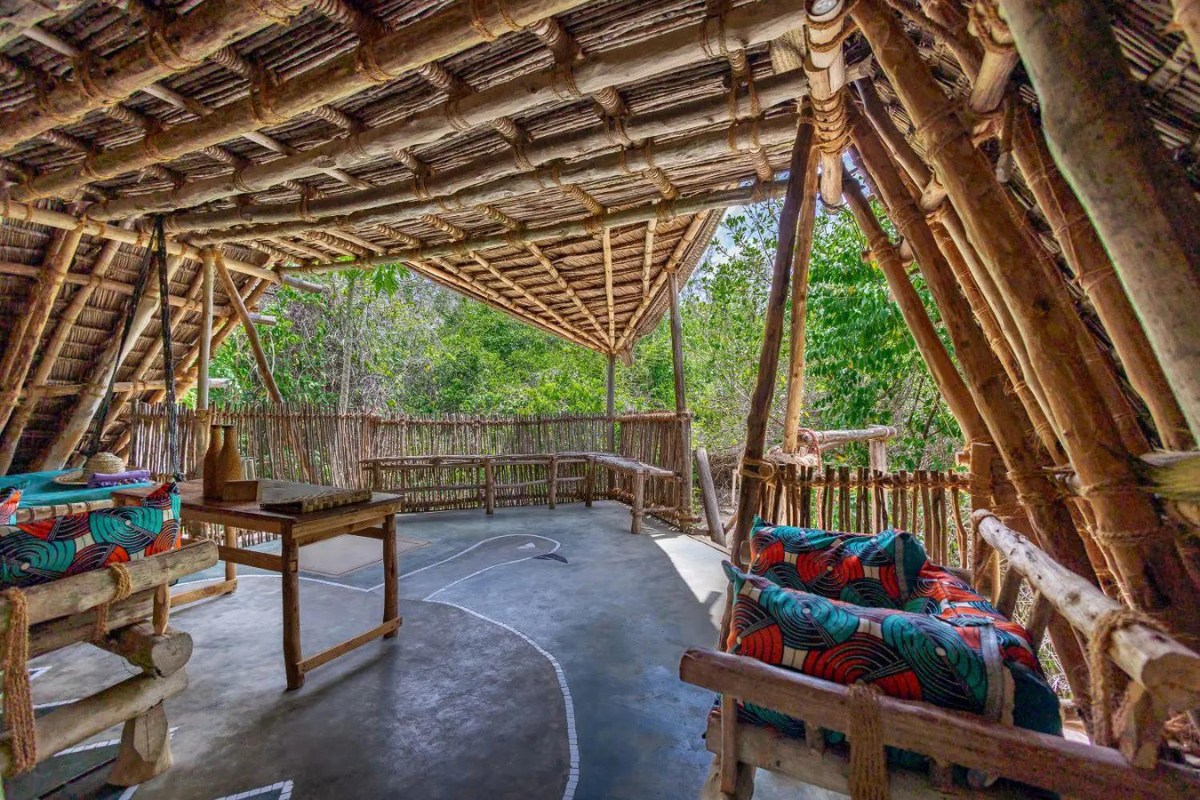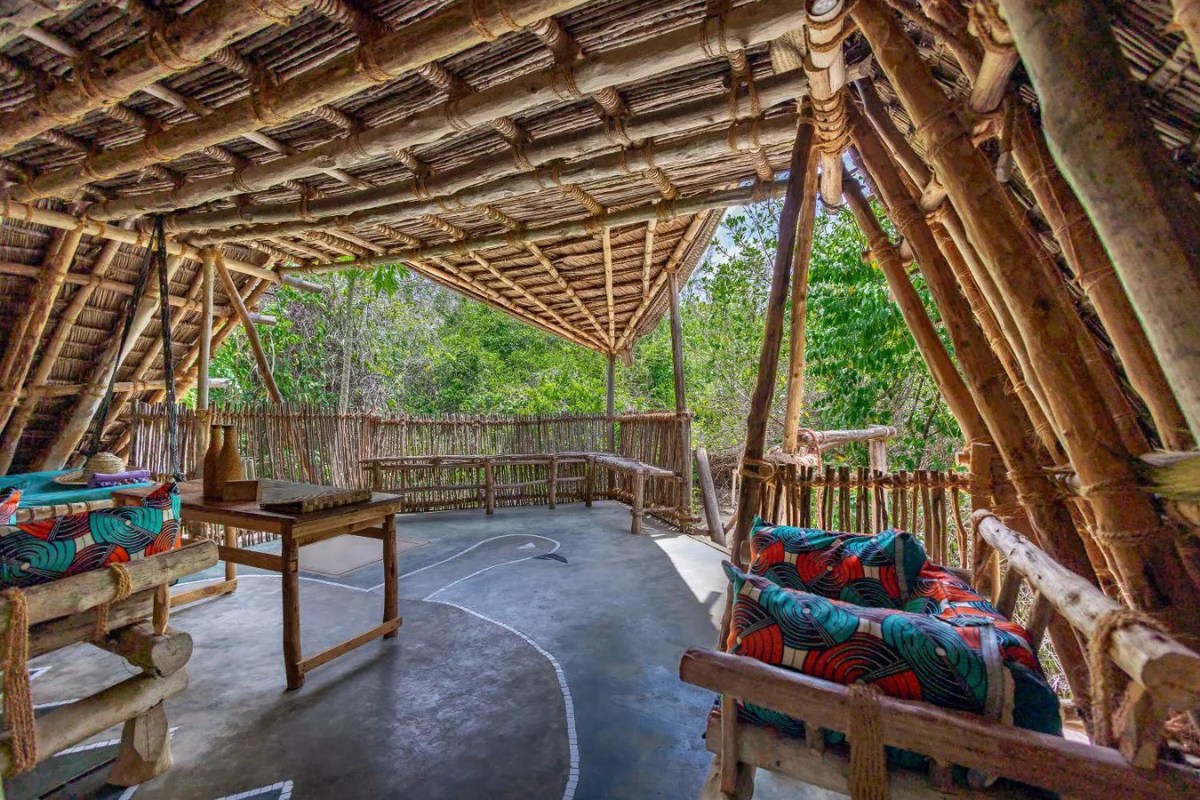In recent years, sustainable travel has gained immense popularity, leading to a surge in eco-friendly accommodations across Tanzania. More than 60% of these establishments ensure minimal environmental impact while providing luxurious experiences. This growing trend highlights the importance of conservation, particularly in regions rich in biodiversity like Tanzania.
Eco-friendly accommodations in Tanzania often integrate local materials and practices that promote sustainability. Many lodges use renewable energy sources, such as solar power, for electricity and hot water. Additionally, initiatives like waste reduction and community development programs make these accommodations both environmentally and socially responsible, thereby offering a more holistic approach to sustainability.

Eco-Friendly Accommodations in Tanzania for Sustainable Travel
Eco-friendly accommodations in Tanzania are designed with the environment in mind. They use renewable energy sources like solar power to reduce their carbon footprint. Water conservation methods, such as rainwater harvesting, ensure that resources are utilized wisely. Many lodges and hotels also incorporate waste recycling programs. These practices not only help the environment but also set a great example for visitors.
Several of these eco-friendly lodgings offer a unique experience that blends luxury with sustainability. Guests can enjoy amenities like organic toiletries and locally-sourced meals. The interiors often feature furniture made from reclaimed wood. Staying in such accommodations provides a comfortable and responsible way to explore Tanzania’s natural beauty. This makes the trip enriching and eco-conscious.
Eco-friendly accommodations also support local communities in multiple ways. They often hire staff from nearby villages, providing steady employment opportunities. Local artisans and farmers supply many of the items used in these lodges. This support promotes economic development and cultural preservation. It creates a beneficial cycle for both the environment and the people living there.
Choosing eco-friendly lodgings can have a significant impact on conservation efforts. With increased demand, more businesses are encouraged to adopt sustainable practices. In Tanzania, this helps protect important ecosystems. Tourists can feel good knowing their choices contribute to long-term environmental health. It’s a win-win for travelers and the planet.
Defining Sustainable Travel and Its Importance in Tanzania
Sustainable travel means making choices that help protect the environment and support local communities. This type of travel focuses on reducing waste, conserving natural resources, and respecting the culture and traditions of the destination. In Tanzania, sustainable travel is crucial due to its diverse wildlife and unique landscapes. Popular spots like Serengeti National Park and Mount Kilimanjaro attract numerous tourists every year, making conservation efforts vital.
Tourism in Tanzania heavily relies on its natural beauty and wildlife. If these resources are not protected, future generations may not enjoy the same experiences travelers do today. Sustainable travel practices help ensure that the influx of visitors does not harm the delicate ecosystem. It also encourages the local population to continue preserving their natural and cultural heritage. Sustainable tourism creates a balance between exploration and conservation.
Sustainable travel often involves staying in eco-friendly accommodations, using local transportation, and supporting local businesses. Tourists can reduce their carbon footprint by choosing lodges that use renewable energy or participating in community-led tours. Supporting local businesses means money spent by tourists stays in the community, boosting the local economy. These practices help create a positive cycle of growth and sustainability.
The importance of sustainable travel in Tanzania extends beyond environmental benefits. It helps protect endangered species by funding conservation projects and creating awareness. When tourists opt for eco-friendly travel options, they contribute to these crucial initiatives. This support is vital to maintaining the fragile balance within Tanzania’s ecosystems. By making informed choices, travelers can have an enjoyable trip that also benefits the planet.
How Rolux Safaris Promotes Sustainability Through Eco-Friendly Lodging Options
At Rolux Safaris, sustainability is a top priority. Our eco-friendly lodging options are designed with the environment in mind, featuring energy-efficient designs and solar-powered facilities. By using locally sourced and sustainable materials, we minimize our carbon footprint. Our waste management practices include recycling and composting to reduce landfill waste. Rolux Safaris provides a green yet luxurious experience for guests.
One of our key initiatives is supporting local communities through sustainable tourism. We employ staff from nearby villages, ensuring that tourism benefits the local economy. Our lodges purchase goods from local farmers and artisans, promoting small businesses. This support helps create a positive impact on the community, making it stronger and more resilient. Guests have the opportunity to learn about local cultures, enhancing their travel experience.
Our focus on conservation is evident in our wildlife protection programs. Lodges are strategically located to avoid disrupting natural habitats, allowing wildlife to thrive. We invest in conservation projects that protect endangered species and their environments. Guests can participate in educational programs to understand the significance of preserving biodiversity. Together, we can make a difference in protecting Tanzania’s unique ecosystems.
Rolux Safaris is committed to providing an eco-conscious travel experience. Our accommodations integrate modern amenities with sustainable practices, ensuring comfort without compromising the environment. We believe that responsible tourism is the key to preserving our planet for future generations. By choosing eco-friendly lodging options, guests contribute to global conservation efforts. Sustainable travel with Rolux Safaris is both rewarding and impactful.
The Impact of Choosing Sustainable Accommodations on Local Communities and Environment
Choosing sustainable accommodations significantly benefits local communities. These eco-friendly lodgings often source goods and services from nearby areas. This support boosts local businesses and creates jobs for residents. When tourists stay at these accommodations, their spending contributes directly to the community’s economy. It’s a win-win situation that fosters growth and sustainability.
Sustainable lodgings in Tanzania also prioritize employing local people. Hiring staff from local communities ensures a steady income for many families. These jobs often come with training and development opportunities, empowering individuals. The skills learned can be used in other areas, promoting long-term economic stability. This approach creates a loyal and engaged workforce dedicated to maintaining high standards.
From an environmental perspective, sustainable accommodations help protect natural resources. Many eco-friendly lodges use renewable energy sources like solar power and wind turbines. They also implement water-saving methods such as rainwater harvesting and low-flow fixtures. These practices minimize resource consumption and reduce the overall environmental impact. This is crucial in preserving Tanzania’s diverse ecosystems.
Waste management is another critical aspect of sustainable accommodations. Practices such as recycling, composting, and reducing single-use plastics are standard. These efforts help lower the amount of waste sent to landfills. Sustainable lodgings also educate guests about the importance of minimizing waste. This encourages responsible behavior that travelers can adopt in their daily lives.
Eco-friendly accommodations contribute to conservation projects and wildlife protection. Many lodges allocate a portion of their earnings to fund local conservation initiatives. These projects help protect endangered species and preserve their habitats. By staying in these lodgings, guests support these vital efforts. Their stay directly aids in maintaining and protecting the natural environment.
Finally, sustainable lodgings offer educational experiences for travelers. Guests can learn about local culture, environmental conservation, and sustainable practices. These educational opportunities make the travel experience enriching and informative. By understanding the impact of their choices, travelers can make more responsible decisions in the future. Sustainable travel thus fosters a deeper connection between tourists and the places they visit.
Key Takeaways
- Eco-friendly lodgings use renewable energy and minimize waste.
- They support local communities through jobs and purchasing goods.
- Sustainable practices help protect Tanzania’s wildlife and environment.
- These accommodations offer luxurious yet responsible travel experiences.
- Choosing eco-friendly options promotes responsible tourism worldwide.














